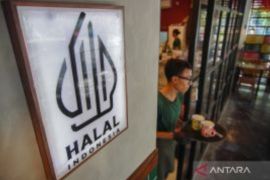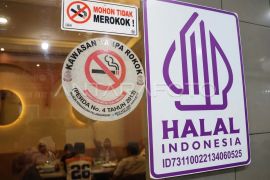He stated that MSMEs often encountered problems while registering their products to obtain halal certificates. However, applying through associations or in groups can assist in meeting all requirements.
"I proposed this (group application) to the Head of the (Halal Product Assurance) Agency. Thus, the associations are responsible for the members," Hasan remarked on Tuesday.
The government postponed the mandatory halal certification for MSMEs to 2026 to educate business owners about the policy.
Hasan said that MSMEs, merchant groups, and associations should make the most of this momentum to get halal certificates.
"These one to two years should be used to speed up submissions through associations," he remarked.
Meanwhile, the Ministry of Cooperatives and Small and Medium Enterprises (SMEs) will oversee the obligation of halal certification for MSMEs that had been postponed from October 2024 to 2026.
The deferment applies to food and beverages, traditional medicine, herbal products, and cosmetic chemicals produced by MSMEs, among others.
"This will simplify, expedite, and encourage MSMEs to participate in halal certification by registering themselves," said Riza Damanik, a member of expert staff to the Minister of Co-operatives and SMEs.
He added that his ministry would also collaborate with local governments to verify and strengthen data on MSMEs requiring halal certification.
Damanik expressed his belief that with strong literacy regarding halal certification, all related issues and problems can be resolved by 2026.
Related news: Halal certification rule for micro enterprises postponed to 2026
Related news: Halal certification of MSME products mandatory from Oct: ministry
Translator: Maria C, Kenzu
Editor: Anton Santoso
Copyright © ANTARA 2024












